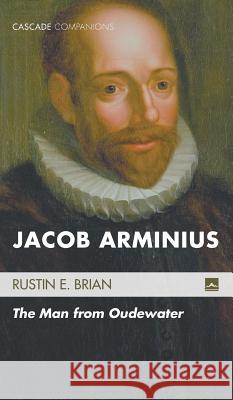Jacob Arminius » książka
Jacob Arminius
ISBN-13: 9781498219785 / Angielski / Twarda / 2015 / 126 str.
Jacob Arminius
ISBN-13: 9781498219785 / Angielski / Twarda / 2015 / 126 str.
(netto: 115,52 VAT: 5%)
Najniższa cena z 30 dni: 120,96
ok. 16-18 dni roboczych.
Darmowa dostawa!
Jacob Arminius was a Dutch theologian whose views have become the basis of Arminianism and the Dutch Remonstrant movement, and are quite influential on Wesleyan, and therefore Methodist, theology as well. Arminius attempted to reform Reformed theology and ended up lending his name to a movement that resisted some of the primary tenets of Calvinism. Rustin E. Brian outlines the life and theology of Arminius, shedding fresh light on his life, theology, and writings. In hopes of better understanding Arminian theology and Arminianism, Brian concludes with a constructive comparison and contrast of Arminius and several prominent theological figures: Pelagius, John Wesley, and Karl Barth.""Much important and serious scholarship has been done in recent years to recover Arminiuss theology for a new generation of Christians. Rustin Brian adds to this recovery, providing a creative introduction to Arminius that draws upon and adds to this scholarly conversation while making the great theologian more accessible to lay readers.""--Mark H. Mann, Co-editor of Reconsidering Arminius: Beyond the Reformed and Wesleyan Divide, Associate Professor of Theology and Director of the Wesleyan Center, Point Loma Nazarene University ""Whether worn as a badge of honor or hurled in derision, the term Arminian says both too little and too much. In this short book, Brian introduces us to the man behind the adjective, telling us just enough about his background and beliefs to spark a conversation about Arminiuss place in the history of theology and the way theology might benefit from listening to him. What would a Reformed Wesleyan look like? Maybe like this.""--Matt Jenson, Associate Professor of Theology, Torrey Honors Institute, Biola UniversityRustin E. Brian is an ordained Pastor in the Church of the Nazarene, currently pastoring Renton Church of the Nazarene in Renton, WA, and Adjunct Professor of Theology at Northwest Nazarene University and Seattle Pacific University. He is the author of Covering Up Luther: How Barths Christology Challenged the Deus Absconditus that Haunts Modernity (2013).











